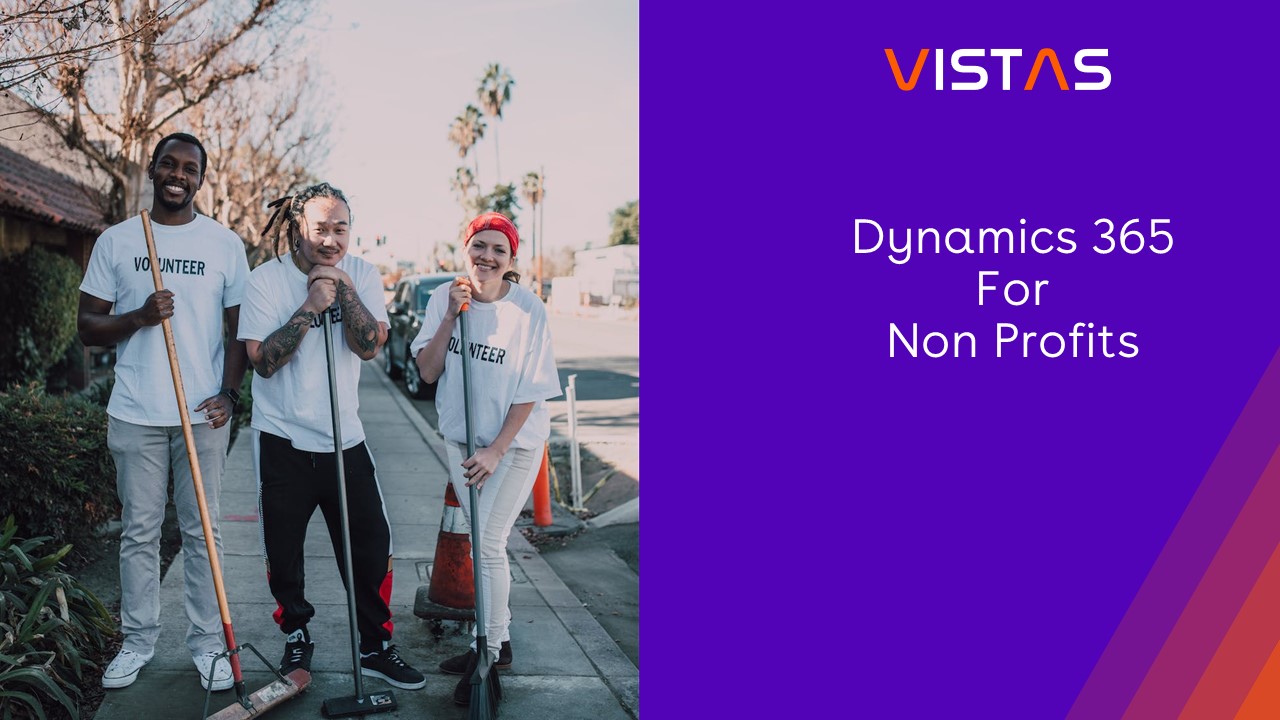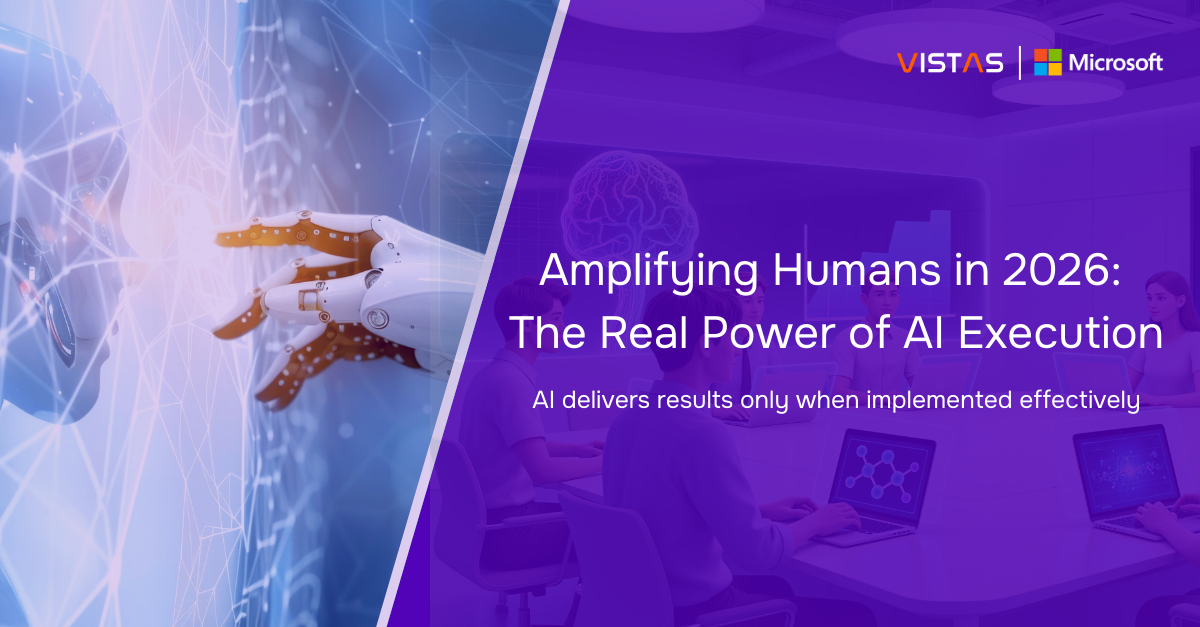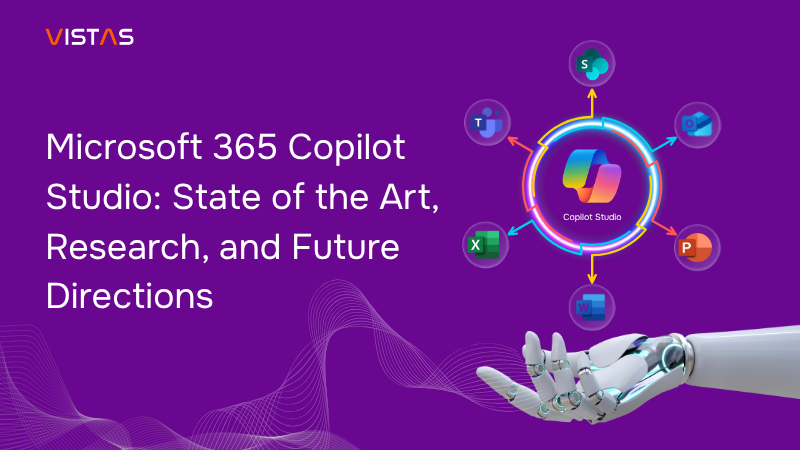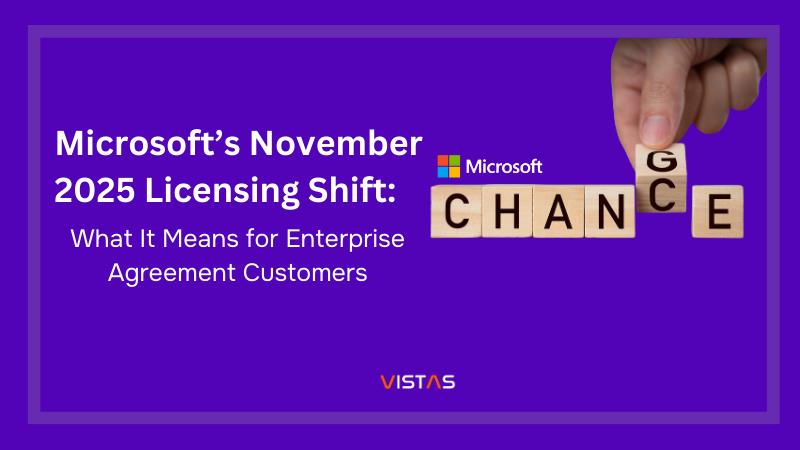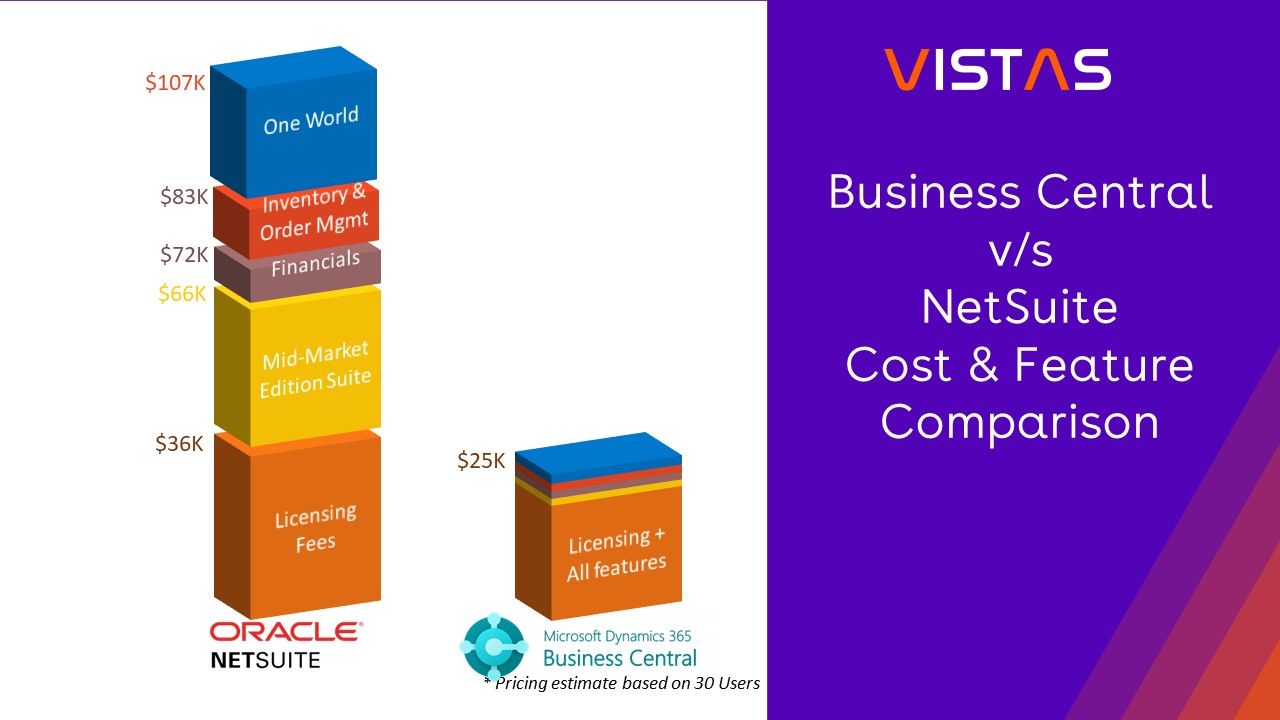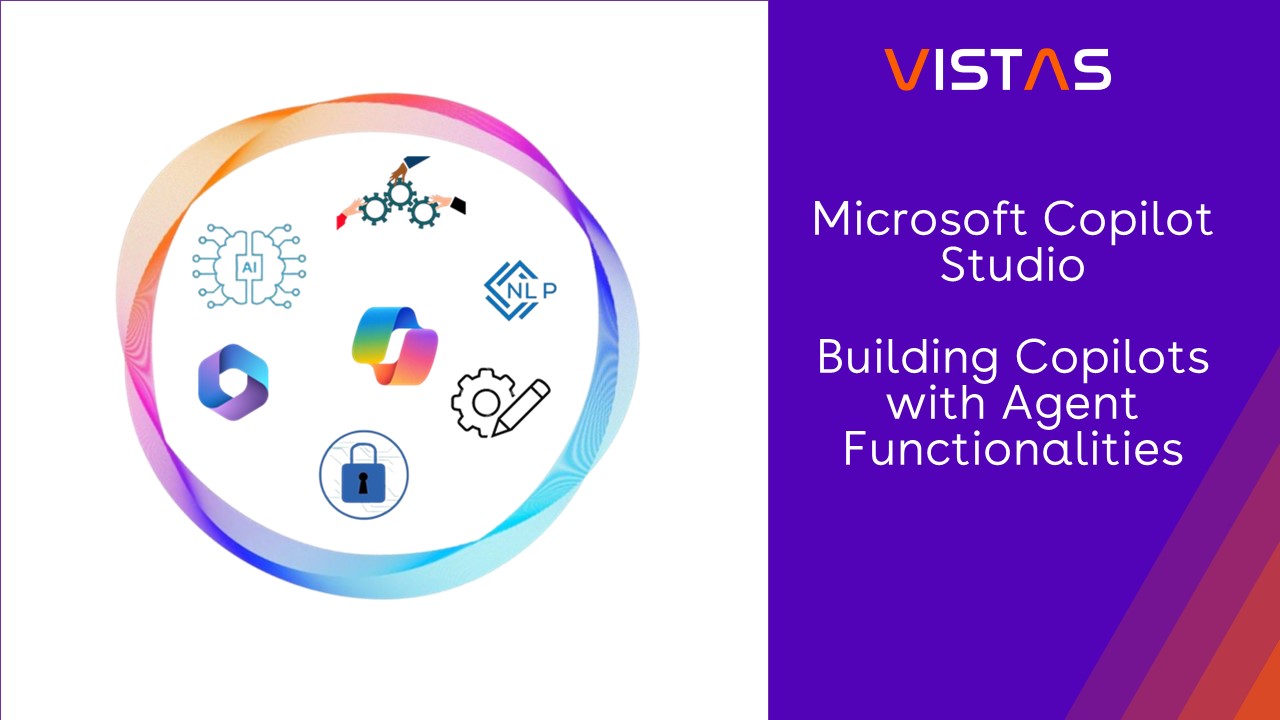Microsoft Dynamics 365 for Non Profits
Microsoft Dynamics 365 is a cloud-based suite of business applications that helps organizations manage their customer relationship management (CRM) and enterprise resource planning (ERP) functions. It includes a variety of modules for managing different business operations, such as sales, marketing, customer service, finance, supply chain management, and more. Microsoft Dynamics 365 is designed to help businesses streamline their operations and make data-driven decisions by providing a centralized platform for managing their business processes. The suite also includes tools for data analytics and artificial intelligence, which can help businesses gain insights into their operations and make informed decisions. Microsoft Dynamics 365 is available as a software-as-a-service (SaaS) solution, which means that businesses can access it through the internet without having to install any software on their local machines. This makes it easy for businesses of all sizes to implement and use the platform.
A nonprofit organization is an organization that is dedicated to achieving a particular social or environmental mission, rather than generating profits for owners or shareholders. Nonprofits typically work to advance charitable, educational, religious, scientific, literary, or other similar purposes. Nonprofits are usually exempt from paying federal income tax and may also be exempt from state and local taxes. This tax-exempt status is granted by the government because nonprofits are recognized as serving a public benefit, and any profits made by the organization are reinvested into the organization’s mission rather than being distributed to owners or shareholders. Examples of nonprofit organizations include charities, educational institutions, religious organizations, environmental groups, and healthcare providers. Nonprofits can be structured as corporations, trusts, or associations, and they may be funded by donations, grants, or other sources of revenue.
Criteria for Organizational Qualification for Nonprofit:
Organizations must be a:
- Nonprofit or non-governmental organization with recognized legal status in their respective country (equal to 501(c)(3) status under the United States Internal Revenue Code);
- Public library that provides general library services without charge to all residents of a given community, district, or region; or
- Public museums, including public or private institutions, open to the public, that conserve and exhibit tangible objects for purposes of cultural preservation, education, or aesthetic enjoyment.
Mission
In addition to the organization criteria, eligible organizations must also operate on a not-for-profit basis and have a mission to benefit the local community that could include but is not limited to – providing relief to the poor; advancing education; improving social welfare; preserving culture; preserving or restoring the environment; promoting human rights; establishment of civil society.
Any organization that does not meet the criteria outlined above for eligible nonprofit missions is ineligible for Microsoft nonprofit programs. Visit Microsoft Licensing for more information about licensing options for ineligible organizations. Examples of ineligible organizations include, but are not limited to:
- Nonprofit organizations that have not obtained recognized legal status in their respective country.
- Governmental organizations or agencies, including international governmental organizations, and United Nations Entities.
- Schools, colleges, and universities including formal educational institutions, nonprofit schools, and academic museums.
- Healthcare organizations including, but not limited to, hospitals, healthcare networks, health plans, and ambulatory/outpatient healthcare organizations.
- Public Utilities, including public transportation, telecommunications, and utilities.
- Financial institutions, including banks, insurance providers, and pension and retirement funds.
- Professional, commerce and trade associations.
- Professional and semi-professional sports organizations, including governing bodies, Olympics, and national or international tournaments.
- Political, labor, and fraternal organizations.
Non-Discrimination
In addition to the previous criteria, Microsoft values and respects individual and cultural differences and is committed to providing an inclusive environment that is welcoming and free from discrimination. Therefore, organizations are not eligible to participate in the Microsoft nonprofit program if they have a policy or mission of discrimination in hiring, compensation, promotion, termination, retirement, training, programs, activities, and/or services based on race, color, sex, national origin, religion, age, disability, gender identity or expression, marital status, pregnancy, sexual orientation, political affiliation, union membership, or veteran status.
Additional Terms of Use:
Microsoft reserves the right to grant or deny an organization’s application or participation at any time, for any reason, and to supplement or amend these eligibility guidelines at any time without notice. Selections are made at the sole discretion of Microsoft and are not subject to external review. Microsoft requires that grantees regularly complete an attestation to our donor rules to maintain eligibility. Failure to complete the required attestation may remove eligibility for Microsoft’s nonprofit programs unless/until the organization completes the required attestation. Additionally, Microsoft reserves the right to reduce or remove an organization’s access to nonprofit offers if the organization is determined to abuse the program. Examples of program abuse include, but are not limited to, intentional user mis-licensing, sharing licenses with ineligible organizations, or failing to remove unused grant licenses from an organization’s subscription (i.e., failure to maintain at least 85% active usage of all granted licenses).
Licenses
Depending on the employee status and role in the nonprofit there is a difference between available offers:
- Grants – Granted licenses are only permitted for paid employees and unpaid executive staff if all organization eligibility is met. User amount limits do apply and vary by availability of country of usage. Additionally, organizations are expected to regularly remove unused granted licenses from their subscription. Adherence to policy guidance is encouraged and tenants may be subject to audit by Microsoft.
- Discounts – Discounted licenses are permitted for all staff, including volunteers and temporary staff of the organization. Eligible nonprofits may access discounted pricing on commercial cloud offers, and some on-premises offers. Discounts vary by product, and/or quantity.
How to qualify for the nonprofit status
Step One:
First learn about the registration and eligibility process and how to get nonprofit offers from Microsoft. For further assistance, access frequently asked questions about our nonprofit product donations and discounts. Next, gather documents that prove your organization’s eligibility, as described on the Eligibility page.
Step 2
Microsoft will evaluate your potential eligibility. Registration review may take up to 7 days. You will receive an email notifying you if your registration has been approved. While waiting for your registration review results get a head start with technical training through the Nonprofit Digital Skills Training, and more learning paths for nonprofit employees.
Step 3
Once your registration is approved, you can access the Nonprofit Hub to take advantage of customized offerings to ensure collaboration, productivity, and security of your organization.
Microsoft Dynamics 365 Resources for Nonprofits
1.Intelligent constituent engagement
Intelligent constituent engagement refers to the use of advanced technology and data analytics to engage and interact with individuals or groups who have a stake in a nonprofit issue through Microsoft Dynamics 365. This includes customers, clients, members, voters, donors, or any other stakeholders. Intelligent constituent engagement aims to leverage artificial intelligence, machine learning, natural language processing, and other advanced technologies to better understand the needs and preferences of constituents and deliver personalized and relevant experiences across various channels such as social media, email, messaging platforms, chatbots, or voice assistants.
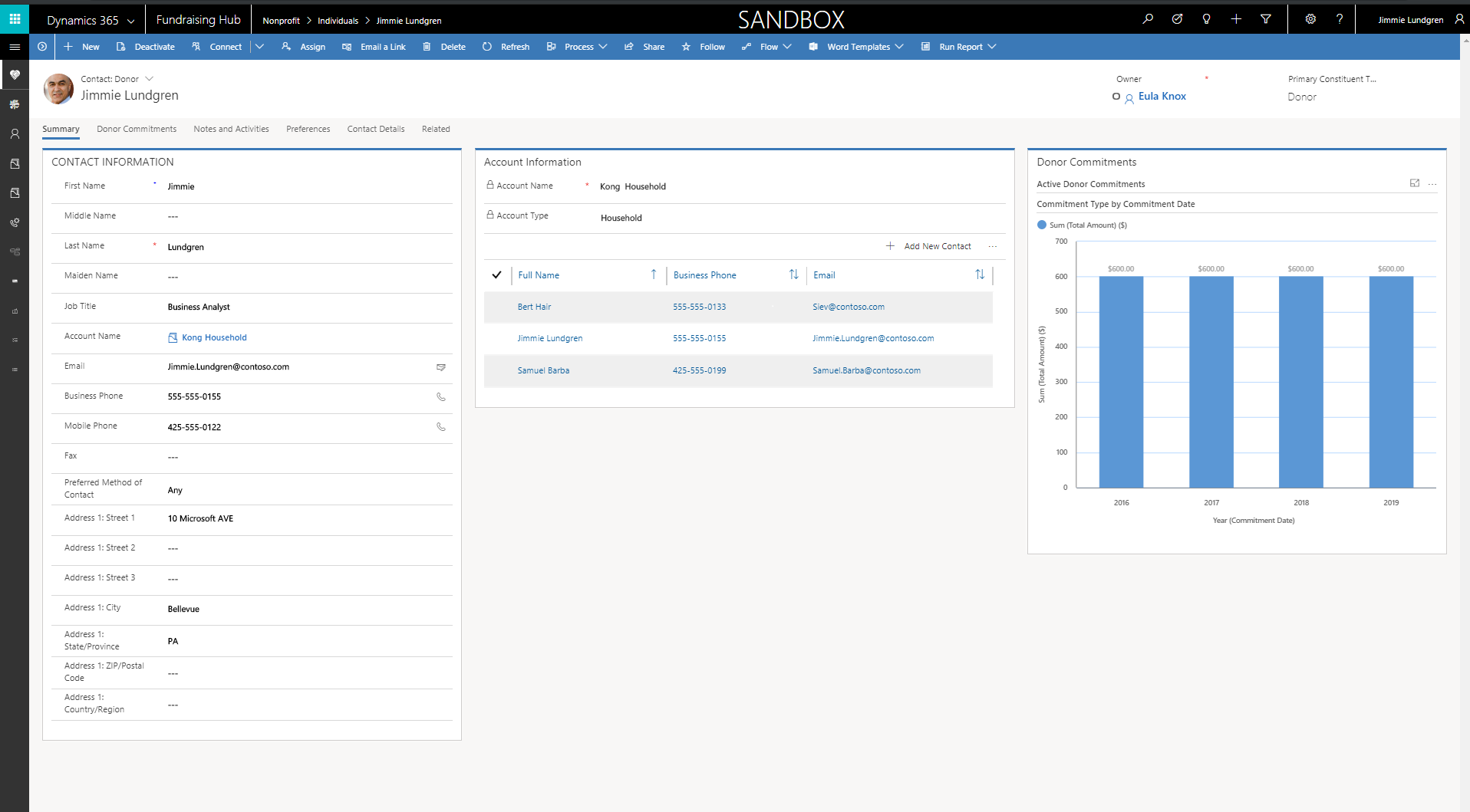
The goal of intelligent constituent engagement is to build stronger relationships, increase loyalty, and improve overall satisfaction by providing timely and accurate information, answering questions, addressing concerns, and soliciting feedback in a more effective and efficient manner. This approach can be applied in various domains such as non-profit organizations. Earn donors and volunteers for life with customer relationship management (CRM) capabilities through Microsoft Dynamics 365. Take contextual information into every conversation and enable personalized interactions through a 360-degree view of donor and volunteer engagements.
2. Modern Finance and Operations
Modern finance and operations refer to the use of advanced technologies and data analytics in managing financial and operational processes within a nonprofit with Microsoft Dynamics 365. This includes the use of cloud computing, artificial intelligence, machine learning, robotic process automation, and blockchain technology to optimize financial operations, streamline business processes, and enhance decision-making.
Modern finance and operations also involve the integration of various financial and operational functions such as accounting, and logistics to achieve greater efficiency, accuracy, and agility. This integration helps to break down silos and improve collaboration across different teams and departments. Overall, modern finance and operations enable organizations to leverage technology and data to achieve better outcomes, drive innovation, and remain competitive in a nonprofit landscape. Automate and modernize the financial operations for nonprofits of all sizes with Microsoft Dynamics 365 Finance and Business Central will be a game changer in their mission and service growth. Monitor performance in real time, predict future outcomes, and make data-driven decisions to drive greater impact.
3. Modernize business processes
Accelerate mission impact and save compared to other low-code development tools with the world’s most complete low-code platform. Power Platform helps you efficiently analyze data, automate processes, and build apps, websites, and virtual agents for the nonprofits.
4. Do more with the service data
Common Data Model includes standardized, extensible data schemas from Microsoft and its partners that are relevant to the nonprofit sector including constituent management, fundraising, awards, program delivery and impact tracking. The Nonprofit Accelerator extends the Common Data Model and includes sample apps, sample data, dashboards, and documentation.
5. Modular ERP: The Key to Agility
Discover why organizations are moving to a more modular, adaptable cloud enterprise resource planning (ERP) solution that unifies their financial and business operations.
- Opening a 360-degree view of your financials and business operations.
- Driving rapid growth with elastic scale, flexible deployments, and predictable pricing.
- Controlling cash flow, freely moving from CapEx to OpEx with a subscription-based model.
- Providing a ready-to-implement mobile option.
- Using an intelligent and intuitive user-interface to easily access and visualize data across the organization.
Vista Cloud are pioneers in the field of Microsoft Dynamics 365 Business Central and CRM. This platform is a comprehensive solution that can help businesses streamline their operations and improve customer experiences, and having a team of experts to support its implementation and management can be invaluable. In addition to installation and setup of Microsoft Dynamics 365, Vista Cloud also provides training and education for users to ensure that they can effectively use the platform to meet their unique nonprofit business needs.
REFERENCE:
https://docs.microsoft.com/
https://cloudblogs.microsoft.com/dynamics365/
https://learn.microsoft.com/en-us/
